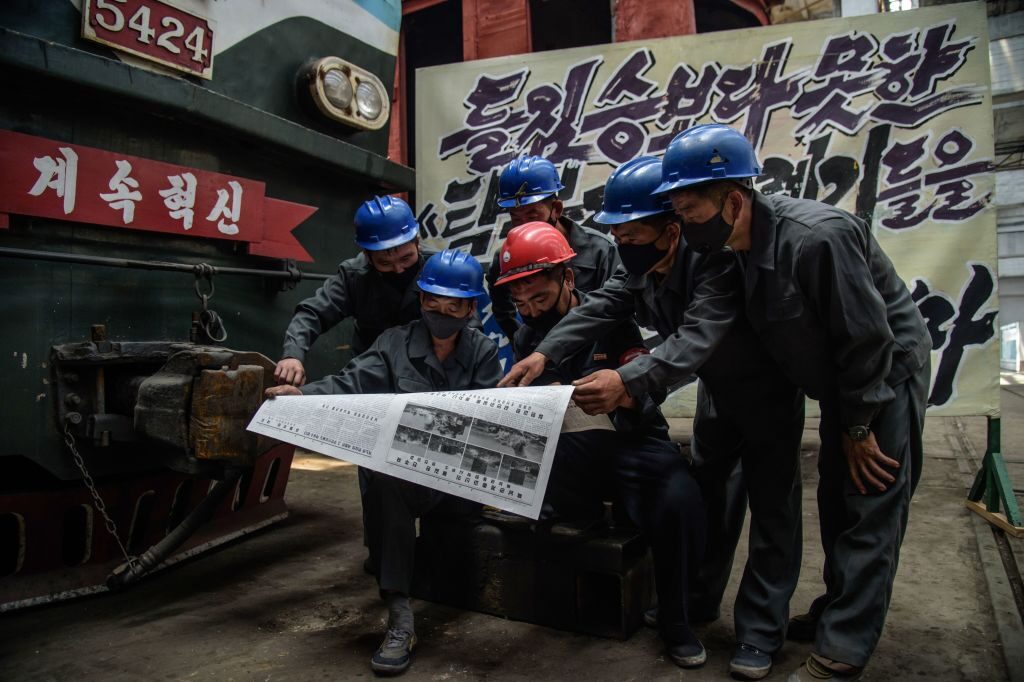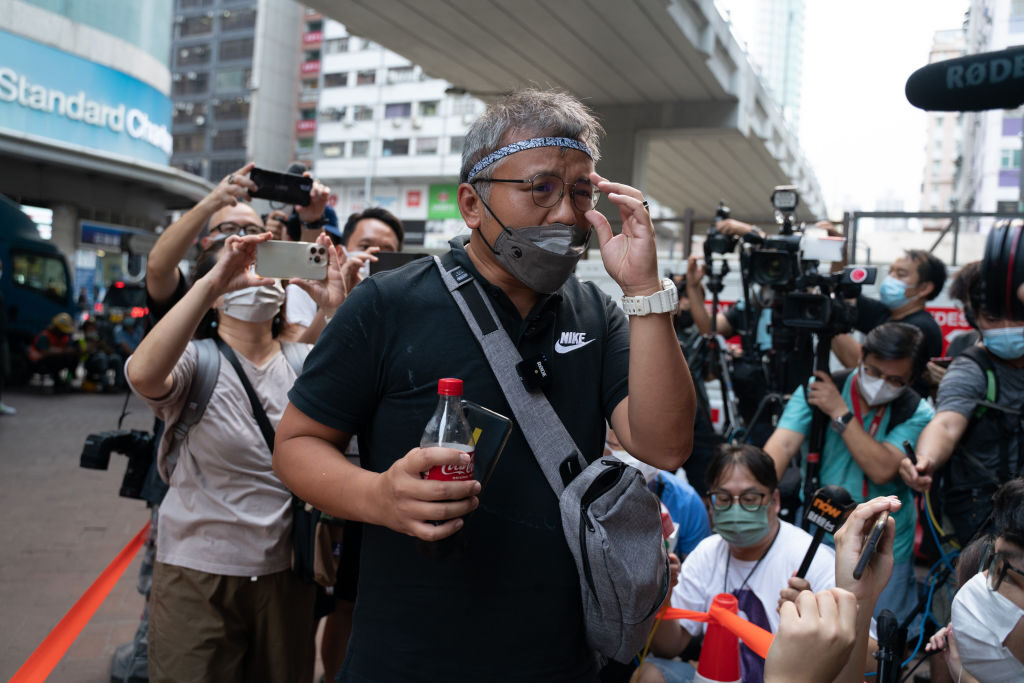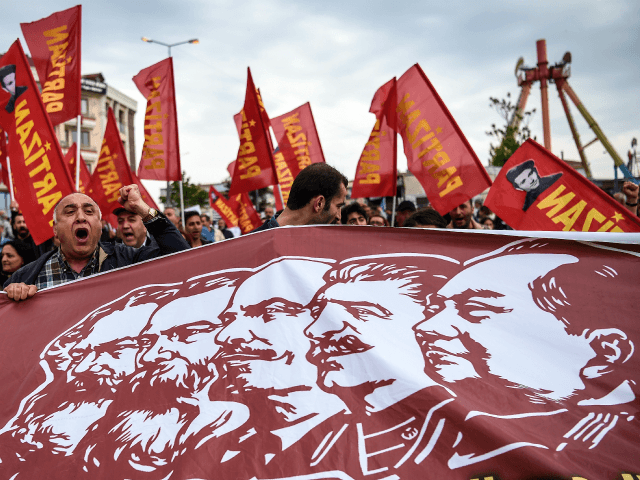The Reporters Without Borders (RSF) Press Freedom Index, published on Wednesday, ranked communist North Korea as the world’s worst place to be a journalist, concluding a list whose least prestigious spots are dominated by communist regimes.
RSF, a global organization that advocates for the rights of journalists, publishes its Press Freedom Index annually, based on “political, economic, legal, and social interference” to practicing journalism. In addition to ranking countries by those four factors, the RSF methodology also grades countries on the basis of whether threats exist within them to the safe practice of journalism.
“In the 180 countries and territories ranked by RSF, these indicators are evaluated on the basis of a quantitative tally of abuses against journalists and media outlets,” the organization explains, “and a qualitative analysis based on the responses of hundreds of press freedom experts selected by RSF (including journalists, academics and human rights defenders) to more than 100 questions.”
North Korea was ranked number 180, the worst place in the world to attempt to report information. Under the communist Kim family cult, independent media outlets are illegal. As the communist party in North Korea is formally named the “Workers’ Party of Korea” (WPK), RSF did not describe North Korea as “communist” or mention communism or socialism in its assessment of the country.
“The Korean Central News Agency (KCNA), the government’s official mouthpiece, is the only permitted news source for North Korea’s media,” RSF detailed. “The regime tightly controls the production and distribution of information and strictly prohibits independent journalism. A few foreign press agencies such as Agence-France Presse (AFP) and Kyodo News are officially present in the country but operate under close surveillance, which impairs their reporting ability.”

Employees of the Kim Jong Thae Electric Locomotive Complex pose for a photo as they read a copy of the Rodong Sinmun newspaper showing coverage of North Korea’s demolition of the north-south joint liaison office, in Pyongyang on June 17, 2020. (KIM WON JIN/AFP via Getty Images)
Communist China ranked number 179, followed in ascending order by Vietnam, Iran, Turkmenistan, Syria, Eritrea, Myanmar, Cuba, and Bahrain. Of the top ten countries, four – North Korea, China, Vietnam, and Cuba – are ruled by explicitly communist regimes. Two others, Syria and Eritrea, are governed by repressive socialist parties, Bashar al-Assad’s Arab Socialist Ba’ath Party and the People’s Front for Democracy and Justice, the only legal political party in Eritrea.
Iran, run by a radical Islamist regime, is closely allied to Assad’s regime and most of those at the bottom of the RSF list, most prominently Cuba and China. Its diplomatic landscape is almost entirely dominated by alliances with communist and socialist regimes. Similarly, the military junta in Myanmar, while not explicitly ideological, boasts the most international support from communist states China, Laos, and Vietnam.
The extremely repressive regime in Turkmenistan is run by the “Democratic Party,” known as the Communist Party during Soviet rule.
Only the tenth least-free country on the RSF Press Freedom Index, Bahrain, is neither communist or socialist, nor does it inhabit the diplomatic sphere dominated by communist states. Bahrain is an Islamist monarchy with close ties to the United States.
The United States ranked at number 45 on the Press Freedom Index, a three-spot drop from an already strangely low ranking attributed in part to the stabbing homicide of Nevada journalist Jeff German; local Democrat official Robert Telles was arrested and charged in relation to the killing in October. Despite America dropping multiple places on the index under leftist President Joe Biden, RSF invited Secretary of State Antony Blinken to its World Press Freedom Day festivities and partly blamed former President Donald Trump, who left office in January 2021, for the 2023 drop in ranking.
The threats identified for journalists in communist countries are life-or-death for many. In China, for example, RSF noted that independent journalists often face police charges for vague crimes such as “picking quarrels and provoking trouble.”

Chairman of the Hong Kong Journalist Association (HKJA) Ronson Chan speaks to members of media outside a police station on September 19, 2022 in Hong Kong, China. Chan turned himself in to police over his charge of obstructing police while reporting. (Anthony Kwan/Getty Images)
“Independent journalists can also be legally placed in solitary confinement for six months under ‘Residential Surveillance at a Designated Location’ (‘RSDL’) in China’s ‘black prisons,’ where they are deprived of legal representation and may be subjected to torture,” RSF detailed. “China is the world’s largest jailer of journalists, with more than 100 currently detained.”
In communist Vietnam, RSF detailed, journalists face abject “terror” on the part of the state.
“The [communist] apparatus takes care to suppress all journalistic initiatives emanating from civil society, such as the Bao Sach (‘Clean Journal’) group and the Independent Journalists Association of Vietnam (IJAVN),” RSF reported. “Pham Doan Trang, who was awarded the RSF Press Freedom Prize in 2019, has been sentenced to nine years in prison. Around 40 journalists are currently held in Vietnam’s prisons, where mistreatment is widespread.”
RSF’s analysis of its own index does not identify communism or socialism as a threat to press freedom, despite its outsized presence at the bottom of the press freedom list and its absence at the top – where Norway, Ireland, and Denmark take the top three places. Instead, RSF focused on the alleged threat to journalism created by “disinformation and propaganda.”
“Most of the Index questionnaire’s respondents reported that political actors in their countries were often or systematically involved in massive disinformation or propaganda campaigns,” RSF claimed. “The difference is being blurred between true and false, real and artificial, facts and artifices, jeopardising the right to information.”

COMMENTS
Please let us know if you're having issues with commenting.